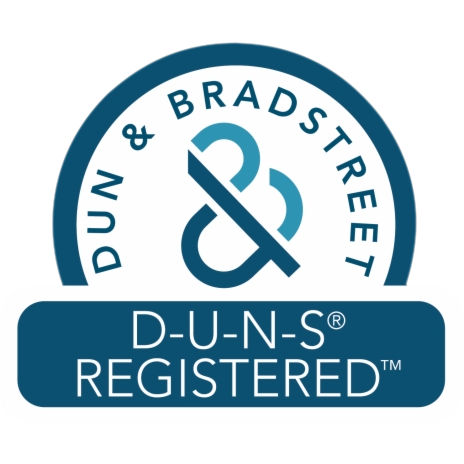db6
now browsing by tag
NLMK Verona Tool Steel: Tough & Stable
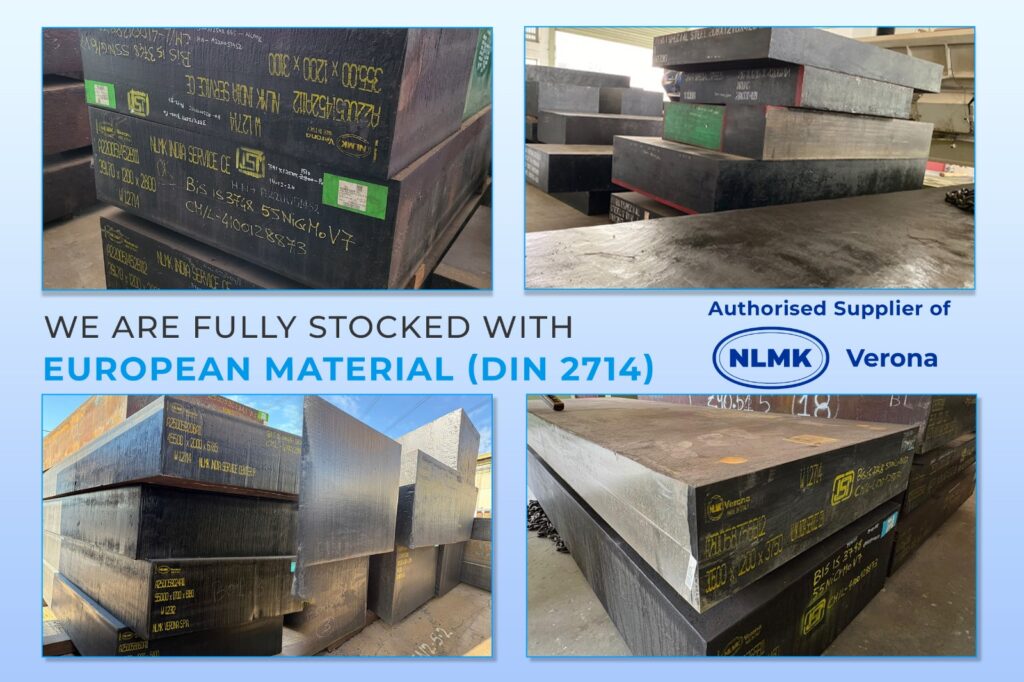
When it comes to tool steel suppliers in India, industries demand materials of high strength, precision, and durability. Virat Steels having great experience consistently in metal domain for 7 decades bringing you the finest in European engineering—NLMK Verona Tool Steel. Known worldwide for its toughness, stability, and performance, this steel is trusted across sectors where reliability is non-negotiable.
What Makes NLMK Verona Tool Steel Exceptional?
NLMK Verona, part of the globally respected NLMK Group, is a leader in European tool steel manufacturing. Their products are engineered to hold extreme industrial conditions, ensuring longer service life and superior efficiency.
- Unmatched Toughness
- Dimensional Stability
- High Performance
Optimized for demanding applications like die-making, forging, and cutting tools.
Applications Across Industries
NLMK Verona’s tool steels are trusted in sectors where precision and durability are non-negotiable:
- Automotive Manufacturing: For molds, dies, and wear-resistant components.
- Aerospace Engineering: Ensuring stability in parts exposed to extreme conditions.
- Heavy Engineering: Industrial machinery, specialized tools.
- General Manufacturing: From injection Molds to stamping dies, performance is guaranteed.
Virat Steels: Your Trusted Tool Steel Supplier in India
Virat Steels don’t just supply steel—We deliver solutions engineered for success. By offering NLMK Verona European Tool Steel, we empower our clients with materials that defines with excellent cutting-edge metallurgy technology.
When you choose Virat Steels, you are choosing:
- Global quality with local expertise
- Quick Service
- Technical guidance to your needs
NLMK Verona’s European Tool Steel is more than just a material—it’s truly a commitment to performance. At Virat Steels, we are proud to bring this world-class steel to industries across India, ensuring that our customers stay ahead in quality and productivity.
Looking for the best tool steel suppliers in India?
Choose Virat Steels—your gateway to Italian Tool steel excellence & Discover authentic European quality with full assurance.
Meanwhile for more details explore on- https://www.viratsteels.com/
Email Us: info@viratsteels.com.
Ph: 98140 – 21775, 99991 – 24971 to 80 , 92163-21771 to 79.
European Die Steels for Longer Tool Life – Backed by NLMK Verona (Italy) & Virat Steels (India)
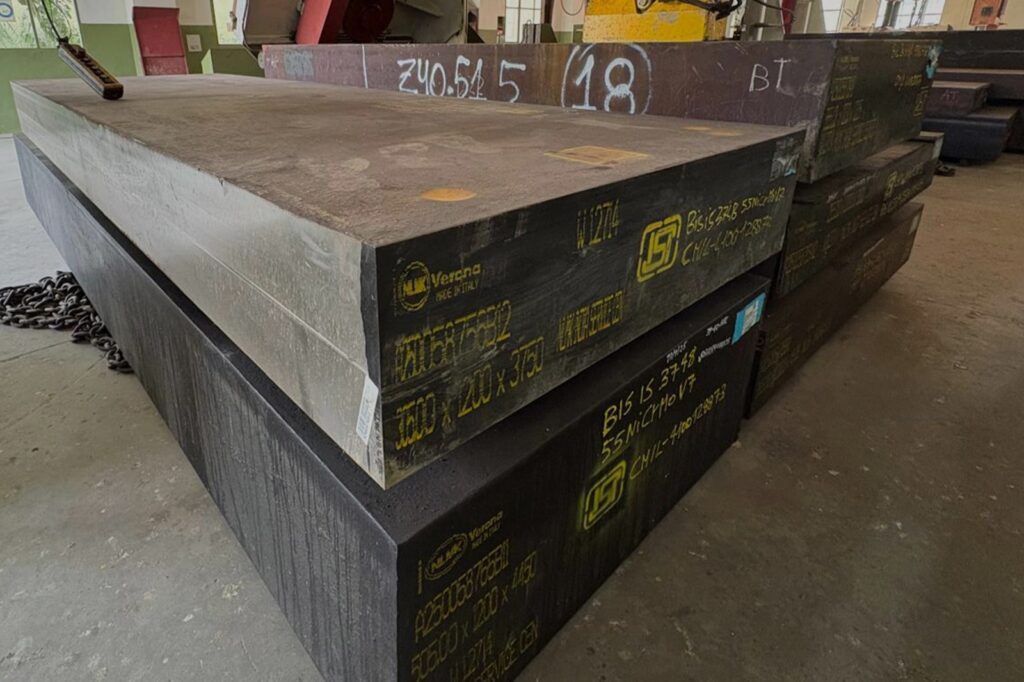
When it comes to tool and die steel, what it truly matters is –tool life, that truly considered as an important technical parameter for improved productivity. This is where European Tool & Die Steel continues to stand out as a proven solution.
Why European Tool Steel Stands Apart?
Globally, European tool steels are recognized for :
- Their advanced steel making technology,
- Strict quality control,
- Consistent performance.
NLMK Verona – European Excellence from Italy
NLMK Verona, based in Verona, Italy—an industrial hub known for metallurgical excellence—is a reputed European producer of high-performance tool and die steels engineered for:
- More tougher & crack-resistant
- Easier to machine
- More dimensionally stable.
When combined with a trusted Indian supply partner, they deliver excellence across tooling and die-making applications in India.
Bringing European Tool Steel to India: NLMK Verona × Virat Steels
Through partnership of NLMK Verona with Virat Steels, now Indian industries will have easier access to European-grade steel with reliable local stocking and service & technically supported solutions.
With over 70+ years of experience in the Indian metal industry, Virat Steels remains a trusted partner for toolmakers and manufacturers, supplying premium grades such as:
DIN 1.2714 | 1.2344 | 1.2738 | 1.2379 | HSS M2, M35 , T1 and more backed by the strong manufacturing expertise of NLMK Verona.
Looking for Genuine European Tool Steel with Assured Performance?
Manufacturers, toolmakers, and industry professionals are invited to connect with us at Mach Auto Expo 2026 to explore more premium European Tool & Die Steel solutions.
📍 Venue: LEC, Ludhiana (Punjab)
📅 Date: 20th Feb -23rdFeb 2026
Visit us to discuss tooling challenges, explore NLMK Verona steel grades, and understand how the right material choice can deliver longer tool life and consistent performance.
From Quality Crisis to Quality Assurance: Virat–NLMK Is Bringing Imported Tool Steel in India
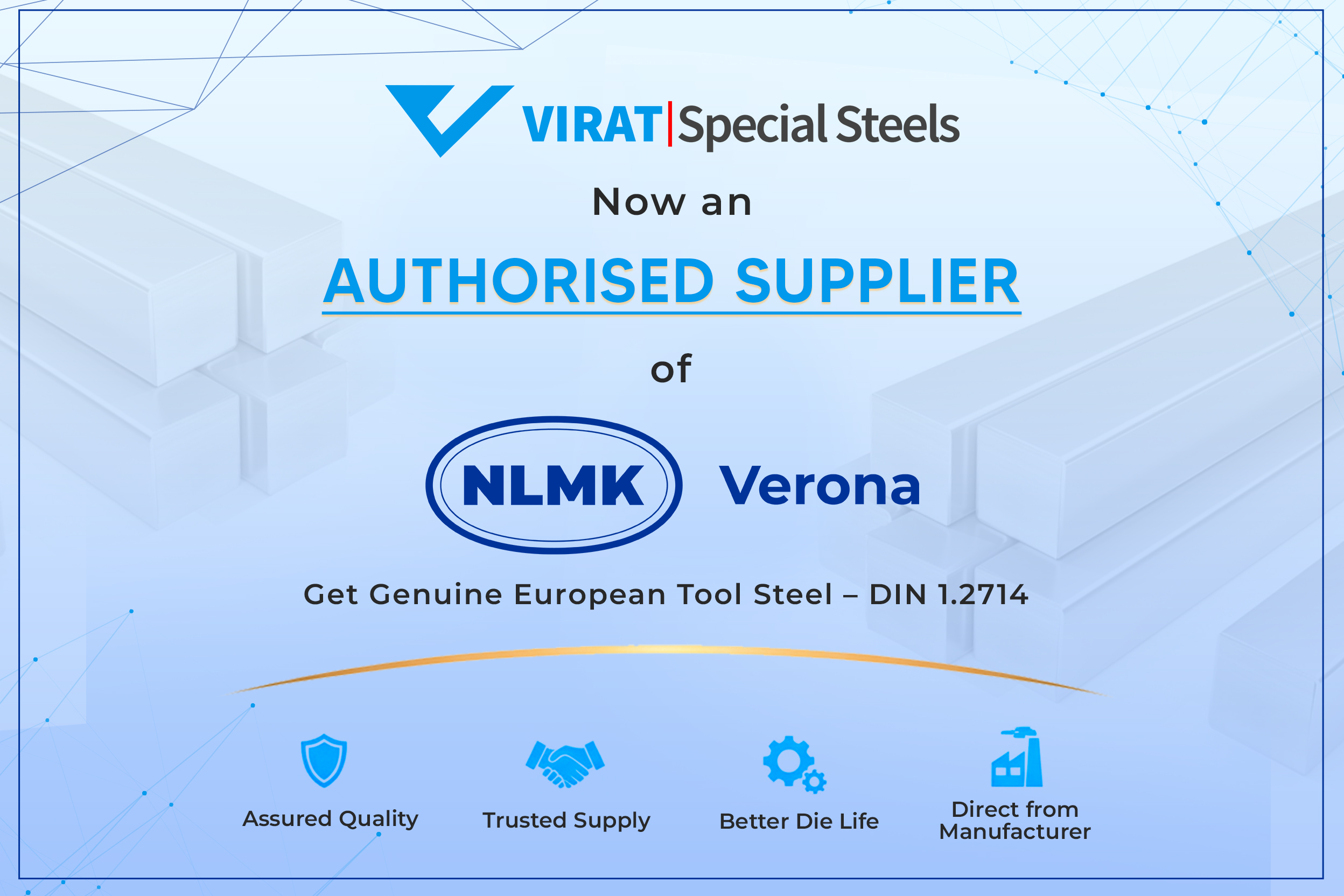
Virat–NLMK Imported Tool Steel in India | Quality Assurance & European Grades.
A Turning Point for India’s Tool Steel Industry
India’s tool and die steel industry is under pressure from rising costs, inconsistent quality, supply disruptions & manipulating “European material” claims. Despite strong demand, access to genuinely high-quality tool steel remains limited leading to growing quality crisis that impacting on productivity and damaging the trust between suppliers and end users across manufacturing sectors.
Genuine European Tool Steel makes the difference –
True European tool steels are manufactured under metallurgical control and advanced refining processes deliver:
• More Dimensionally stable
• Great mechanical properties
• Extended tool life & Higher productivity
Now Available in India Through Virat Steels –
Virat Special Steels , India a trusted name in India’s tool and die steel industry with over 70 years of experience, is proud to announce its partnership with NLMK Verona, Italy-one of Europe’s most reputed makers of high-performance tool and die steels-bringing premium European tool steel to the Indian market.
Until now, only selected suppliers in India are able to offer imported European tool and die steel grades to manufacturers. At a time when the domestic steel industry is facing volatility, Virat Steels, India has built a strong collaboration with NLMK Europe, ensuring reliable local availability and bringing quality to the shop floor.
NLMK Verona’s European metallurgical excellence with Virat Special Steels’ strong Indian stocking, logistics, and technical support, reduce the gap between global quality and local availability.
Global Steel Excellence, Now within Reach
Premium European tool steel is no longer out of reach.
The future of tool steel in India has arrived. Through Virat Special Steels, It is now locally available, reliable, and ready to support the next level of Indian manufacturing.
Looking for genuine European tool steel with assured performance?
👉 Connect with Virat Special Steels to explore NLMK Verona’s premium tool and die steel grades and experience genuine quality assurance.
Meet Us at Mach Auto Expo, Ludhiana on Feb 2026
We invite you to connect with us to explore premium imported materials and industry-focused solutions that will help keep your business ahead — even in challenging times from Leading Indian Supplier Virat Steels.
Venue: Mach Auto Expo 2026, LEC , Ludhiana (Punjab)
Quality Crisis in Tool Steels-Why Reliability matters today?

The domestic steel sector is passing through one of its most challenging phases in recent times. Rising raw material costs, uneven quality, supply chain disruptions, and intense price competition have put immense pressure on both the manufacturers and end users. Even a few established German companies also have sold out or shut down their mills and facilities.
While demand from forging, automotive, plastics, and heavy engineering sectors continues, it is becoming more difficult to find die steel and truly high quality tools.
A Growing Industrial Risk
Unfortunately, today many buyers are being misled in the name of “European material”. The major concern is the manipulation of materials by certain suppliers. They charge premium prices while supplying sub-standard materials under the label of premium brands.
What actually happens- is that such suppliers focus only on short-term gains instead of true quality & they may win orders temporarily, but in doing so they break the trust between genuine steel suppliers and end users and ultimately damage the reputation of the image of genuine suppliers who truly deliver certified, high-quality steel.
Industry Challenges: When Solutions Matter the Most
Across industrial sectors, manufacturers are experiencing
- Fluctuating domestic quality
- Shorter tool life
- Premature cracking and
- Increasing expectations for precision and performance.
These issues directly impact productivity, machining accuracy, and overall tool life. In such a scenario, access to reliability, quality, the world-class steel becomes truly essential.
What industries need today is consistent, high-grade steel that meets global standards — not just in name, but in actual performance. This is where European steel material makes a clear difference, enabling higher productivity and long-term growth.
European Tool Steel: Now Closer to Indian Manufacturers
Until now, Only selected suppliers in India have truly been able to offer imported European tool and die steel grades to manufacturers. Over 70 years’ experience in metal domain , Virat Special Steels, India is changing this scenario by making these Premium European Steels more accessible to the Indian industry through strong local stocking, quick service, and technical support guidance with seamless performance and precision right on their shop floor.
Premium European tool steel is no longer out of reach — it is now locally available, reliable and ready to support the Indian manufacturing through Virat Special Steels.
The best practices for recycling DB6 and H13 steels
Introduction
Recycling and sustainability have become crucial aspects of the modern steel industry. With the increasing demand for high-performance tool steels such as DB6 and H13, manufacturers and industries need to adopt efficient recycling and sustainable manufacturing practices. Recycling these steels not only conserves natural resources but also significantly reduces the environmental footprint by minimizing industrial waste and decreasing carbon emissions.
In this article, we will explore the best practices for recycling DB6 and H13 steels, highlight the importance of sustainability, and discuss innovative methods being used to ensure a greener future for the steel industry.
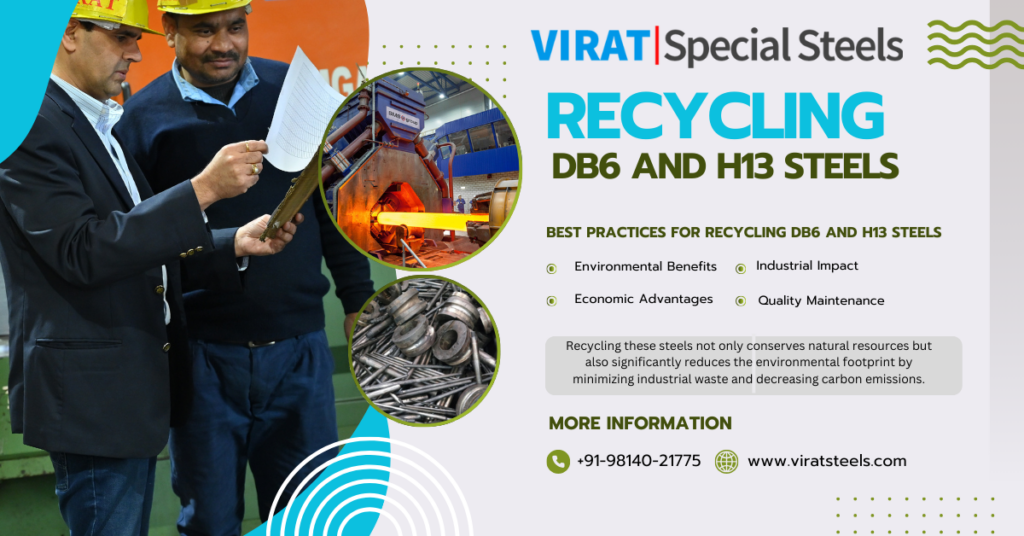
Understanding DB6 and H13 Steels
What is DB6 Steel?
DB6 is a hot work tool steel known for its high toughness, wear resistance, and excellent thermal stability. It is widely used in applications such as:
- Die casting
- Forging dies
- Plastic molds
What is H13 Steel?
H13 is another hot work tool steel, but it is recognized for its high strength, shock resistance, and superior heat resistance. It is commonly used in:
- High-pressure die casting
- Extrusion dies
- Cutting tools
Why Are These Steels Preferred?
Both DB6 and H13 are extensively used due to their long lifespan, excellent mechanical properties, and ability to withstand high temperatures. However, their wide usage also means significant material waste if not recycled efficiently, making sustainability a key concern.
Importance of Recycling DB6 and H13 Steels
Recycling DB6 and H13 tool steels provides numerous environmental, economic, and industrial benefits, such as:
Environmental Benefits
- Reduction in Mining Activities: Less reliance on mining for raw materials, leading to lower deforestation and soil degradation.
- Lower Carbon Footprint: Recycling steel emits less CO₂ compared to new steel production.
- Waste Reduction: Prevents discarded tools and machine parts from ending up in landfills.
Economic Advantages
- Cost Savings: Recycled steel is cheaper to process compared to producing new steel from iron ore.
- Job Creation: The recycling industry generates employment opportunities in steel collection, processing, and re-manufacturing.
Industrial Impact
- Reliable Supply Chain: Reduces dependency on fluctuating raw material markets.
- Quality Maintenance: Ensures industries maintain consistent material properties without resource depletion.
Best Practices in Recycling DB6 and H13 Steels
To ensure effective recycling of DB6 and H13 steels, industries should follow these best practices:
1. Collection and Sorting of Scrap
- Segregate DB6 and H13 steel scraps based on composition and purity.
- Remove contaminants such as coatings, oils, and residual chemicals before recycling.
2. Efficient Melting and Refining Processes
- Use energy-efficient furnaces such as electric arc furnaces (EAFs) for melting steel scrap.
- Introduce vacuum degassing techniques to eliminate impurities and enhance steel quality.
3. Minimizing Energy Consumption
- Utilize waste heat recovery systems to optimize energy usage during melting.
- Improve process automation to reduce excess energy loss.
The Role of Sustainable Steel Production
Sustainability in DB6 and H13 steel production goes beyond just recycling. Manufacturers must also adopt eco-friendly practices to ensure a minimal carbon footprint.
1. Energy-Efficient Manufacturing
- Use electric arc furnaces (EAFs) instead of traditional blast furnaces.
- Upgrade equipment and technology for better process efficiency.
2. Reducing Carbon Emissions
- Implement low-carbon production techniques, such as using hydrogen instead of coal.
- Reduce waste production through lean manufacturing principles.
3. Use of Renewable Energy
- Switch to renewable power sources, such as solar or wind energy, in manufacturing plants.
Challenges in Recycling DB6 and H13 Steels
Despite the advantages, recycling DB6 and H13 steels comes with several challenges:
1. Contamination Issues
- Impurities such as paint, coatings, and lubricants can alter the quality of recycled steel.
2. High Recycling Costs
- Advanced sorting and refining processes require costly equipment and technology.
3. Technological Limitations
- Some recycling facilities lack the necessary machinery to process tool steels effectively.
4. Market Demand for Recycled Steel
- Industries prefer virgin steel due to consistent material properties, making the demand for recycled DB6 and H13 relatively low.
Innovations in Steel Recycling
Technological advancements are transforming DB6 and H13 steel recycling.
1. AI-Based Scrap Sorting
- Automated sorting systems use AI and sensors to classify scrap based on chemical composition.
2. Eco-Friendly Melting Technologies
- Innovations such as plasma arc furnaces enhance steel melting efficiency.
3. Closed-Loop Recycling
- Encourages industries to reuse steel waste internally to minimize material loss.
4. Sustainable Alloying Techniques
- Research focuses on developing alternative alloy compositions with improved recyclability.
Regulatory Compliance and Sustainability Standards
Global standards promote sustainable steel recycling:
1. Government Regulations
- Policies such as extended producer responsibility (EPR) require manufacturers to manage steel waste efficiently.
2. International Standards (ISO 14001, ISO 50001)
- ISO 14001: Guidelines for environmental management systems.
- ISO 50001: Framework for improving energy efficiency in steel production.
3. Industry Best Practices
- Leading steel producers follow green manufacturing protocols to align with climate action goals.
The Future of Sustainable Steel Production
The steel industry is embracing sustainable and innovative solutions:
1. Green Steel Manufacturing
- Companies are shifting towards hydrogen-based steel production, reducing carbon emissions.
2. Circular Economy Integration
- Instead of linear waste disposal, manufacturers are adopting closed-loop recycling models.
3. Carbon Capture in Steel Production
- Emerging carbon capture and storage (CCS) technologies help trap emissions before they enter the atmosphere.
Conclusion
The recycling and sustainability of DB6 and H13 steels are essential for reducing industrial waste, conserving resources, and minimizing environmental impact. By following best practices, such as efficient collection, processing, and adoption of green technologies, industries can enhance sustainability while maintaining cost-efficiency.
The future of sustainable steel manufacturing lies in embracing innovations, complying with global regulations, and shifting towards eco-friendly production methods. Every effort in steel recycling brings us one step closer to a greener planet!
FAQs
1. Why is recycling DB6 and H13 steels important?
Recycling these steels reduces waste, lowers production costs, and helps conserve natural resources and energy.
2. What challenges exist in recycling tool steels?
Common challenges include contamination, high recycling costs, technological limitations, and fluctuating market demand.
3. What are the best methods for improving steel recycling efficiency?
Using advanced sorting technologies, energy-efficient melting processes, and closed-loop recycling systems helps optimize efficiency.
4. How does sustainable steel production impact the environment?
It reduces carbon emissions, conserves energy, and minimizes industrial waste, contributing to a healthier planet.
5. What is the future of sustainable steel recycling?
The future includes green hydrogen-based production, circular economy models, and carbon capture technologies for a low-carbon steel industry.
Advantages of Using DIN 2714 in Modern Manufacturing
In today’s world, where sustainability and environmental responsibility have become global priorities, the manufacturing industry is evolving to adopt greener technologies and practices. A significant contributor to this shift is the strategic use of advanced materials like DIN 2714, which not only enhances performance but also offers considerable environmental benefits.
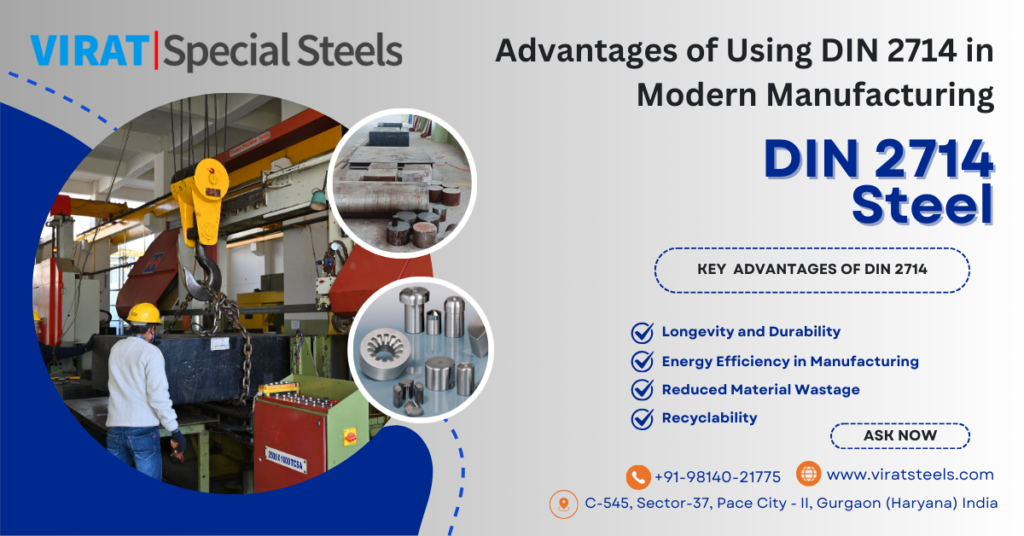
Understanding DIN 2714
DIN 2714 is a high-quality tool steel known for its excellent toughness, wear resistance, and high strength. It’s widely utilized in the forging and die-making industries to produce components that endure extreme mechanical stress. Its exceptional properties contribute to reduced waste, energy efficiency, and sustainable production processes.
Key Environmental Advantages of DIN 2714
1. Longevity and Durability:
The primary environmental advantage of DIN 2714 is its exceptional durability. Components made from this steel are resilient and maintain their structural integrity even under severe conditions. This reduces the frequency of replacements, leading to decreased consumption of raw materials and reduced waste in manufacturing. By lasting longer, DIN 2714 components contribute to a circular economy, minimizing resource depletion.
2. Energy Efficiency in Manufacturing:
The advanced metallurgical properties of DIN 2714 allow for more efficient manufacturing processes. Its high thermal resistance means fewer energy-intensive treatments are required during production. Furthermore, the improved tool performance reduces the downtime and energy associated with frequent maintenance or replacement.
3. Reduced Material Wastage:
The toughness and precision-forming capabilities of DIN 2714 ensure minimal material wastage during machining and forging operations. Manufacturers benefit from precise tolerances and reduced scrap, directly contributing to environmentally friendly production practices.
4. Recyclability:
Tool steels like DIN 2714 are highly recyclable. End-of-life products made from this steel can be melted and repurposed, conserving natural resources and minimizing the environmental impact of metal extraction. This closed-loop recycling system aligns with the goals of sustainable development and resource optimization.
5. Improved Operational Efficiency:
The enhanced performance characteristics of DIN 2714 lead to reduced machine wear and operational inefficiencies. Machines equipped with DIN 2714 components can operate for extended periods with consistent performance, translating to lower energy consumption and reduced carbon emissions.
Supporting Green Manufacturing Practices:
The use of DIN 2714 in modern manufacturing aligns seamlessly with environmentally conscious practices such as lean manufacturing and green supply chain management. Manufacturers can integrate this material into their operations to meet stringent environmental regulations and standards, such as ISO 14001. Moreover, by choosing materials like DIN 2714, companies demonstrate a commitment to environmental sustainability, bolstering their reputation in an increasingly eco-conscious market.
Conclusion
Incorporating advanced materials like DIN 2714 into modern manufacturing processes is a step forward in achieving sustainability and environmental stewardship. Its longevity, energy efficiency, recyclability, and ability to minimize waste make it a preferred choice for industries striving to reduce their carbon footprint. By adopting DIN 2714, manufacturers not only enhance operational efficiency but also contribute to a greener future for generations to come.
Virat Special Steels is proud to provide premium-grade DIN 2714 tool steel, ensuring both performance excellence and a commitment to environmental sustainability. Let’s work together to build a cleaner, greener industrial landscape.
Is DB6 Steel the Right Choice for Your Manufacturing Needs?
When it comes to precision manufacturing, choosing the right steel can make or break your product. DB6 steel, a high-performance grade, is widely recognized for its reliability and performance. But is it the right fit for your specific needs? In this guide, we’ll explore the unique properties, applications, and benefits of DB6 steel to help you make an informed decision.
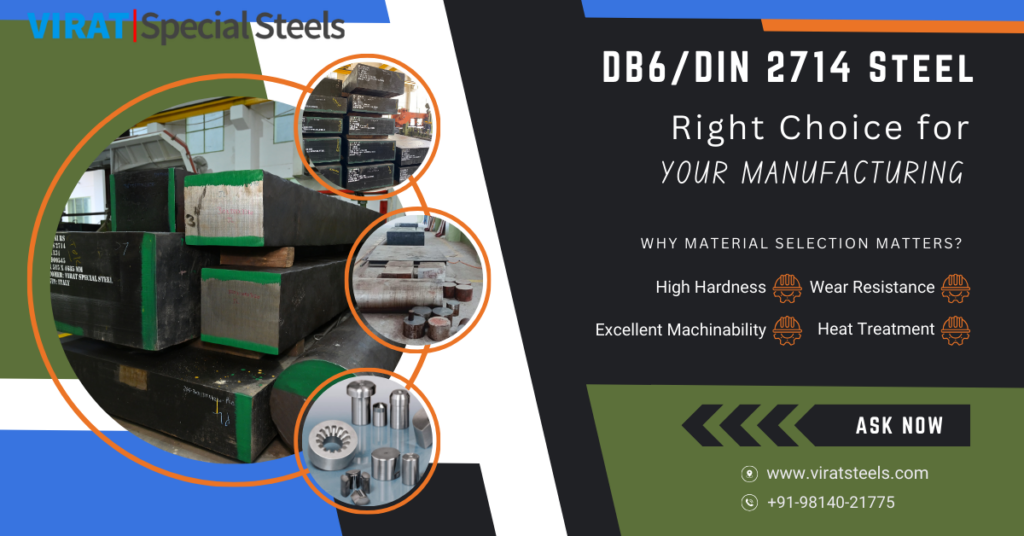
Introduction to DB6 Steel
What Is DB6 Steel?
DB6 steel is a high-quality tool steel renowned for its exceptional toughness and wear resistance. It falls under the hot-work tool steel category, making it a preferred material for various demanding industrial applications. Manufactured to precise standards, it is designed to handle extreme pressures and temperatures without compromising its integrity.
Key Features and Characteristics of DB6 Steel
DB6 steel is characterized by:
- High hardness, ensuring durability during intense usage.
- Superior machinability, reducing manufacturing time.
- Heat treatability, providing the flexibility to customize hardness levels.
Its balanced composition allows it to perform consistently in high-stress environments, making it a top choice for tool and die applications.
The Importance of Choosing the Right Steel for Manufacturing
Why Material Selection Matters
Material selection plays a critical role in ensuring product reliability and performance. Subpar material can result in premature wear, production inefficiencies, and costly replacements. Using high-grade steels like DB6 ensures your components are built to last and perform under challenging conditions.
Impact on Performance and Cost-Efficiency
Choosing the right steel influences both upfront costs and operational expenses. High-quality steels, such as DB6, may seem costlier initially, but their durability and lower maintenance requirements lead to significant savings in the long run.
Properties That Make DB6 Steel Stand Out
High Hardness and Wear Resistance
DB6 steel boasts excellent resistance to abrasion and surface wear. Its high hardness ensures prolonged tool life, even under rigorous operating conditions.
Excellent Machinability
One of DB6’s standout features is its machinability. Despite its strength, it allows for smooth cutting and shaping, which streamlines production processes and minimizes downtime.
Heat Treatment Capabilities
DB6 steel is highly adaptable to heat treatment. This capability allows manufacturers to achieve optimal hardness levels tailored to their applications, enhancing the material’s versatility.
Common Applications of DB6 Steel
Tool and Die Manufacturing
DB6 steel is widely used in crafting tools and dies, where precision and durability are critical. Its resistance to deformation under high stress makes it a top choice for this sector.
Applications in Plastic Moulding and Die Casting
The high thermal conductivity of DB6 steel makes it ideal for plastic molding and die casting. It retains its properties even in repeated high-temperature cycles, ensuring product consistency.
Heavy-Duty Industrial Components
For industries requiring robust components—such as automotive and aerospace—DB6 steel provides unmatched strength and reliability.
DB6 Steel vs Other Tool Steels
Comparison with D2 Steel
DB6 stands out against popular alternatives like D2 steel due to its superior toughness and wear resistance. While D2 is excellent for cold-work applications, DB6 excels in hot-work settings where thermal stress is a concern.
How DB6 Outshines Standard Grades
Compared to generic tool steels, DB6 delivers a perfect balance of hardness, toughness, and machinability. Its consistent performance across demanding environments sets it apart as a premium option.
Factors to Consider When Choosing DB6 Steel
Assessing Your Specific Application Needs
Evaluate the conditions your materials will face—temperature, stress, and exposure. If high-pressure or high-temperature operations are involved, DB6 steel is likely a strong contender.
Cost Analysis and Long-Term Value
While DB6 steel may come with a higher price tag, its durability reduces the need for frequent replacements, ensuring cost-efficiency over time.
Availability and Supply Chain Considerations
Ensure your supplier has a reliable stock of DB6 steel. Trusted providers like Virat Special Steels offer consistent quality and timely deliveries to prevent production delays.
Benefits of Choosing DB6 Steel from Virat Special Steels
Unmatched Quality Standards
Virat Special Steels is renowned for its high-grade materials. Their DB6 steel undergoes stringent quality checks to meet global manufacturing standards.
Reliable Customer Support and Supply Chains
With an extensive distribution network, Virat Special Steels ensures timely supply and excellent after-sales support, making them a preferred choice for manufacturers.
How can I contact Virat Special Steels for inquiries or orders?
You can reach Virat Special Steels through:
- Phone: +91-98140 21775
- Email: info@viratsteels.com
- Website: www.viratsteels.com
Their offices are located in Gurgaon, Haryana, and Ludhiana, Punjab, India. For more detailed information, you can visit their official website or contact their customer service team.
World’s Best Premium DIN 2714 Steel Now Available in India!
India’s industrial landscape is rapidly evolving, and premium-quality steel is the backbone driving this transformation. At Virat Special Steels, we are immensely proud to be the trusted distributor and supplier of the world’s finest steel solutions, including high-grade DB6, DIN 2714 steel, designed to meet the rigorous demands of diverse industries.
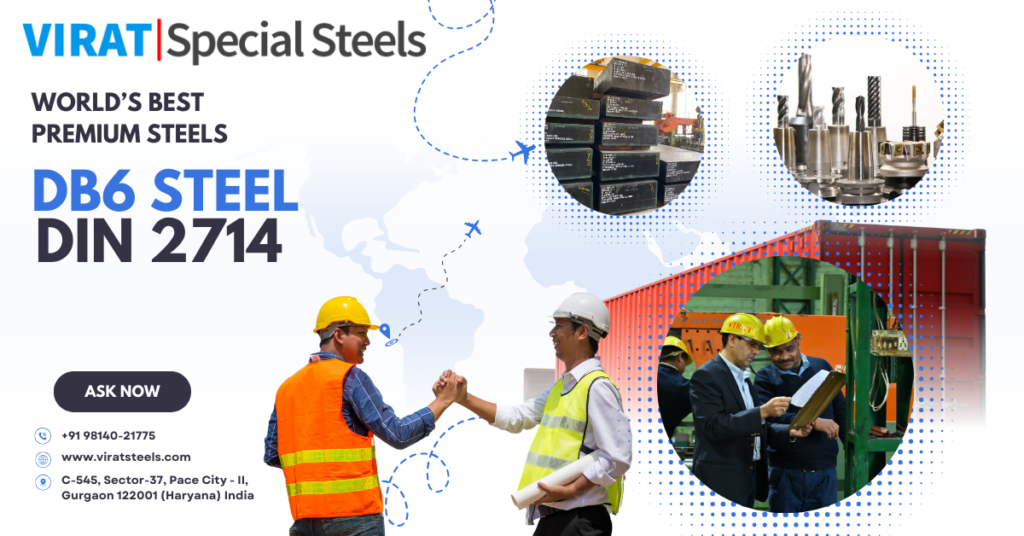
Premium Steel Solutions from Leading Global Manufacturers
Virat Special Steels partners with renowned global steel manufacturers like Swiss Steel DEW, NLMK Verona, Vitkovice, Somers Forge, and Villares Metals. These industry leaders are celebrated for their precision-engineered steel products, combining unparalleled durability and innovation. Now, with Virat Special Steels, Indian industries gain seamless access to these specialty long steel products, offering exceptional quality to match global standards.
Why Virat Special Steels?
1. Reliability
As an official distributor, we ensure direct access to authentic steel products from the world’s top manufacturers. Trust is the cornerstone of our business, and our transparent supply chain guarantees the highest standards of quality and authenticity.
2. Unmatched Quality
Virat Special Steels brings only the best to the table. Our product line includes high-performance steels tailored to meet the specialized needs of industries ranging from automotive and aerospace to energy and heavy machinery. Our flagship offering, DB6, DIN 2714 steel, is a testament to our commitment to quality and innovation.
3. Technical Expertise
With years of experience in the steel distribution industry, we are more than just a supplier. We offer technical insights, guidance, and customized solutions, ensuring your specific industrial requirements are met with precision.
DB6 DIN 2714 Steel: A Benchmark in Excellence
Our premium DB6, DIN 2714 steel is a game-changer, providing:
- Superior Strength: Exceptional durability ensures it stands up to the most demanding applications.
- Versatility: Perfect for forging, die-casting, and industrial tools.
- Precision Engineering: Manufactured to meet stringent global standards, it delivers unmatched performance in every use case.
Empowering Indian Industries
From automotive innovation to advanced tooling solutions, Virat Special Steels is at the forefront of enabling Indian industries to achieve new milestones. Our collaboration with the world’s leading steel manufacturers ensures that businesses in India can remain competitive on the global stage.
Choose Virat Special Steels – Your Partner in Progress
When it comes to premium-quality steel, Virat Special Steels offers unparalleled solutions tailored to the unique demands of your industry. Join us in revolutionizing India’s industrial potential with the world’s best premium steel products. Experience reliability, quality, and technical expertise, all under one roof.
Let’s build the future of India with the strength and precision of world-class steel. Reach out to Virat Special Steels today for your steel requirements!
How can I contact Virat Special Steels for inquiries or orders?
You can reach Virat Special Steels through:
- Phone: +91-98140 21775
- Email: info@viratsteels.com
- Website: www.viratsteels.com
Their offices are located in Gurgaon, Haryana, and Ludhiana, Punjab, India. For more detailed information, you can visit their official website or contact their customer service team.
The Role of DIN 2714 Steel in Forging Industries
The forging industry plays a pivotal role in manufacturing, producing components that form the backbone of various sectors such as automotive, aerospace, construction, and heavy machinery. One material that has emerged as a cornerstone of the forging process is DIN 2714 steel. Renowned for its exceptional properties, DIN 2714 is a hot work tool steel that meets the rigorous demands of forging operations. This blog delves into the characteristics, applications, and benefits of DIN 2714 steel, highlighting its indispensability in the forging industry.
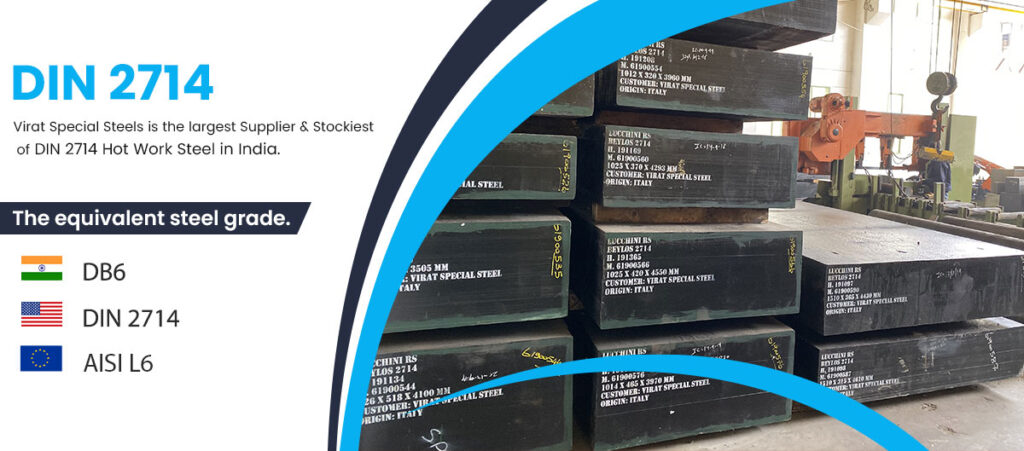
Understanding DIN 2714 Steel
DIN 2714 is a German-standard steel, widely recognized for its high wear resistance, toughness, and thermal stability. It belongs to the family of alloyed steels that exhibit excellent mechanical properties, making it ideal for use in hot forging tools. The composition of DIN 2714 typically includes:
Carbon (C): Contributing to hardness and strength.
Silicon (Si): Enhancing heat resistance.
Manganese (Mn): Improving toughness and hardenability.
Chromium (Cr): Providing corrosion resistance and strength.
Molybdenum (Mo): Increasing high-temperature strength and creep resistance.
This combination of elements gives DIN 2714 its unique ability to withstand extreme operating conditions while maintaining dimensional stability.
Key Properties of DIN 2714 Steel
- High Toughness: With its exceptional toughness, DIN 2714 resists cracking and – chipping, even under heavy loads.
- Excellent Thermal Stability: The steel maintains its mechanical properties at elevated temperatures, making it perfect for hot work applications.
- Wear Resistance: The material can endure prolonged exposure to abrasion, increasing the longevity of forging dies and tools.
- Hardenability: DIN 2714 can achieve a consistent hardness profile, ensuring uniform performance across the material.
Applications in the Forging Industry
DIN 2714 steel’s properties make it indispensable in several forging processes. Some of its primary applications include:
- Forging Dies: The wear resistance and toughness of DIN 2714 make it an excellent choice for dies used in drop forging and upset forging.
- Hot Shear Blades: The steel’s ability to maintain hardness at high temperatures is ideal for cutting hot metal billets.
- Extrusion Tools: DIN 2714’s thermal stability and wear resistance are advantageous in metal extrusion processes.
- Press Tools: These tools require materials that can withstand repeated stress and high impact, making DIN 2714 a preferred choice.
Benefits of Using DIN 2714 Steel
- Increased Tool Life: The superior wear resistance and toughness reduce the frequency of tool replacement, cutting down costs and downtime.
- Improved Efficiency: The steel’s thermal stability allows tools to operate efficiently under high temperatures, enhancing production rates.
- Cost-Effectiveness: Although the initial investment may be higher, the extended tool life and reduced maintenance offset the costs, delivering long-term savings.
- Enhanced Performance: Tools made from DIN 2714 ensure precise and high-quality forging results, meeting stringent industrial requirements.
Conclusion
The forging industry demands materials that can withstand extreme conditions while delivering consistent performance. DIN 2714 steel checks all these boxes, making it a preferred material for manufacturing critical forging tools. By choosing DIN 2714, industries can achieve enhanced productivity, reduced operational costs, and superior product quality.
At Virat Special Steels, we are committed to delivering the highest quality DIN 2714 steel tailored to meet the diverse needs of the forging industry. Partner with us to unlock the potential of this exceptional material and elevate your forging operations to new heights.
FAQ: The Role of DIN 2714 Steel in Forging Industries
1. What is DIN 2714 steel?
DIN 2714 is a German-standard hot work tool steel known for its excellent toughness, wear resistance, and thermal stability. It is widely used in the forging industry for its ability to withstand high temperatures and heavy mechanical loads.
2. What are the key components of DIN 2714 steel?
The primary components of DIN 2714 steel include:
- Carbon (C) for hardness and strength.
- Silicon (Si) for heat resistance.
- Manganese (Mn) for toughness and hardenability.
- Chromium (Cr) for corrosion resistance and strength.
- Molybdenum (Mo) for high-temperature strength.
3. Why is DIN 2714 steel preferred in the forging industry?
DIN 2714 steel is preferred due to its combination of high toughness, wear resistance, thermal stability, and hardenability. These properties make it ideal for manufacturing forging dies, hot shear blades, extrusion tools, and press tools.
4. What applications is DIN 2714 steel suitable for?
DIN 2714 steel is commonly used in:
- Forging dies
- Hot shear blades
- Metal extrusion tools
- Press tools for hot work applications
5. What are the benefits of using DIN 2714 steel in forging?
The key benefits include:
- Prolonged tool life due to high wear resistance
- Improved efficiency in high-temperature operations
- Cost-effectiveness through reduced maintenance and downtime
- Consistent and precise forging results
6. How does DIN 2714 compare with other hot work tool steels?
DIN 2714 stands out for its balanced properties, such as toughness, wear resistance, and heat resistance. It offers an optimal combination of durability and performance, making it a reliable choice for heavy-duty forging tools.
7. Can DIN 2714 steel be customized for specific applications?
Yes, DIN 2714 steel can be heat-treated and machined to meet specific requirements of different forging applications. Working with a trusted supplier ensures customization tailored to your operational needs.
8. What is the typical service life of tools made from DIN 2714 steel?
The service life varies based on the application, maintenance practices, and operating conditions. However, DIN 2714’s durability ensures longer tool life compared to many other materials.
9. How should DIN 2714 steel be maintained to maximize its performance?
Proper maintenance includes regular inspection for wear, timely heat treatment, and ensuring that tools operate within their recommended temperature range. This helps in prolonging the tool’s service life.
10. Where can I source high-quality DIN 2714 steel?
Virat Special Steels is a trusted supplier of premium DIN 2714 steel, offering products tailored to the needs of the forging industry. Contact us to learn more about our offerings and how we can support your business.
Mode of Supply:
Virat Special Steels is the largest stockiest and supplier of DIN 2714 tool steel in flat, square and round bar. We provide steel in all sizes as your requirements. DIN 2714 die steel is available in flat, square and round shape.
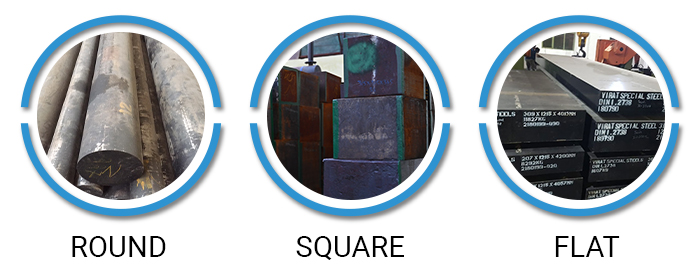
Consult our team who will assist you for DIN 2714 steel query.
https://www.viratsteels.com/din-2714.html
🌐https://www.viratsteels.com 📩info@viratsteels.com 📲+91-98140-21775
Exploring DIN 2714, A Comprehensive Guide
In the industrial world, the type of steel used often defines the success of an operation. With industries increasingly relying on robust and versatile materials, steel grades like DIN 2714 have gained tremendous importance. DIN 2714 is a tool steel renowned for its exceptional mechanical properties and versatile applications. It serves as a pivotal element in numerous industrial domains, driving innovation and efficiency.
This comprehensive guide explores the composition, characteristics, and applications of DIN 2714, shedding light on why this particular steel grade is vital for modern manufacturing.
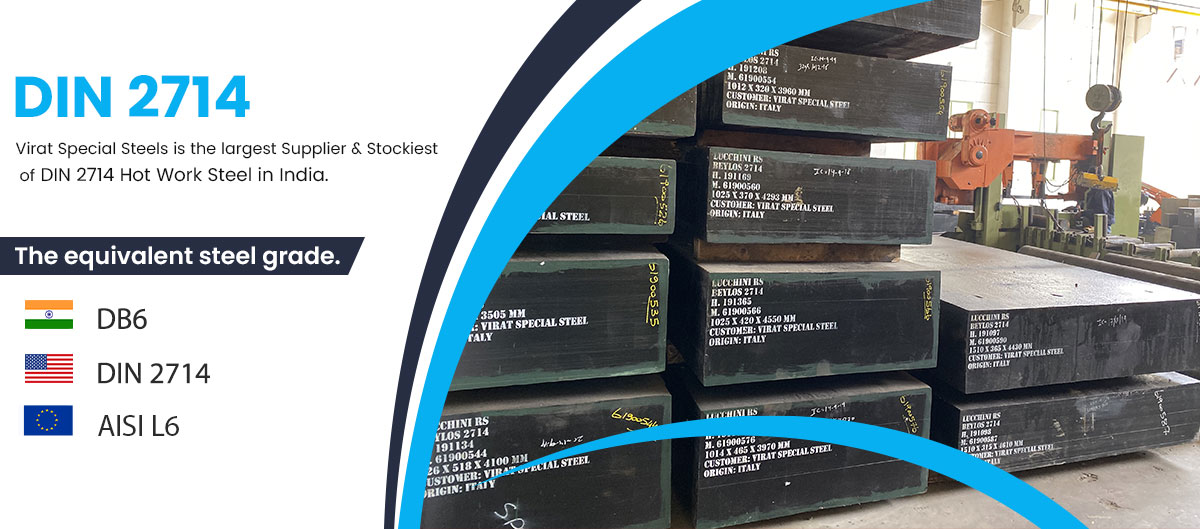
Understanding DIN 2714 Steel
DIN 2714 is classified as a hot-working tool steel, primarily known for its exceptional resistance to deformation at high temperatures. Developed in compliance with the German industrial standard, this steel stands out for its adaptability, toughness, and wear resistance, making it a favored choice for die-making industries.
Historically, the development of DIN 2714 was driven by the need for a material that could withstand extreme stress without compromising on durability. Today, it has become synonymous with reliability and performance in demanding applications.
Chemical Composition of DIN 2714
The chemical makeup of DIN 2714 significantly influences its characteristics. The main components include:
- Carbon (C): Around 0.50% to enhance hardness and strength
- Chromium (Cr): Approx. 1.2% to 2.0%, imparting wear resistance
- Manganese (Mn): Between 0.70% to 1.0%, aiding in toughness
- Silicon (Si): 0.25% to 0.40% for improved machinability
- Molybdenum (Mo): Around 0.30%, increasing high-temperature strength
- Vanadium (V): Small quantities for grain refinement
This precise composition ensures optimal mechanical properties, including high tensile strength, toughness, and durability under extreme conditions.
Physical Properties of DIN 2714 Steel
What makes DIN 2714 stand apart? Here are its key physical properties:
- Hardness: Exceptional durability ensures long-lasting performance even in abrasive conditions.
- Tensile Strength: DIN 2714 boasts a tensile strength of over 1,100 MPa, making it ideal for heavy-duty applications.
- Density: Approximately 7.85 g/cm³, offering a perfect balance of weight and toughness.
These attributes make it suitable for applications involving high pressures and temperatures, ensuring long operational lifespans.
Key Characteristics of DIN 2714
DIN 2714’s features extend beyond its composition.
- Heat Resistance: Its ability to endure high temperatures makes it ideal for hot-working environments.
- Machinability: With excellent machinability, manufacturers can shape this steel with precision, minimizing processing time.
- Weldability: Smooth weldability ensures easy integration into larger assemblies, reducing operational costs.
- Corrosion Resistance: While not highly corrosion-resistant, its treatment processes often include anti-corrosion coatings.
Common Applications of DIN 2714 Steel
DIN 2714 is used across various industries due to its versatility:
- Tool Manufacturing: Ideal for making heavy-duty forging dies, cutting tools, and machine components.
- Industrial Machinery: Widely used in presses, punches, and molds where precision and durability are critical.
- Aerospace and Automotive: Suited for high-stress components like gears and crankshafts due to its toughness.
Heat Treatment Process of DIN 2714 Steel
The heat treatment process significantly enhances the performance and durability of DIN 2714 steel, making it more suited for demanding applications. Let’s break down the stages involved:
- Annealing:
This process softens the steel to make it easier to machine. DIN 2714 steel is typically heated to a range of 820°C to 860°C and then cooled gradually in a furnace. - Hardening:
For increased strength, the steel is heated to a higher temperature range, typically between 1,020°C and 1,050°C, and then quenched in oil or water. - Tempering:
After quenching, the steel becomes brittle. Tempering at temperatures between 550°C and 650°C reduces brittleness while retaining hardness, enhancing its toughness. - Stress Relieving:
To eliminate residual stresses, DIN 2714 is reheated to approximately 600°C, maintaining structural stability during use.
The heat treatment process ensures DIN 2714 performs optimally in hot and high-pressure applications.
Comparison with Other Steel Grades
Understanding how DIN 2714 stacks up against other steel grades offers perspective on its unique benefits:
- DIN 2714 vs. EN 24 Steel:
While EN 24 is a popular alloy steel with excellent strength, DIN 2714 excels in high-temperature applications due to its superior heat resistance. - DIN 2714 vs. DIN 17350:
DIN 17350, though robust, lacks the enhanced machinability and resistance properties of DIN 2714, making it less versatile for hot-working environments.
DIN 2714 provides a balanced combination of toughness, resistance, and machinability unmatched by its counterparts.
Benefits of Using DIN 2714
DIN 2714 has numerous advantages that make it a go-to choice for industries:
- Cost-Effectiveness: Despite its premium properties, it’s reasonably priced compared to other high-performance steels.
- Versatility: Its wide range of applications, from tooling to machinery parts, highlights its adaptability.
- Durability: High resistance to wear and tear ensures fewer replacements and repairs over time, saving costs.
These benefits combine to make DIN 2714 a practical choice for manufacturers across industries.
Limitations and Challenges
Even the best materials have their limitations, and DIN 2714 is no exception:
- Limited Corrosion Resistance: While its wear and heat resistance is impressive, DIN 2714 requires proper coatings or treatments to prevent corrosion in moisture-prone environments.
- Specialized Handling: The heat treatment process demands expertise, which can increase production costs for inexperienced manufacturers.
- Specific Use Cases: Though versatile, its applications are often limited to specific industrial domains like tooling and heavy machinery.
These challenges necessitate careful planning when opting for DIN 2714 steel.
Specifications and Standards of DIN 2714
DIN 2714 complies with stringent standards, ensuring its reliability and quality:
- Chemical Composition: Strictly regulated to ensure consistent mechanical and thermal properties.
- Dimensional Standards: Meets ISO tolerances for precision in industrial applications.
- Testing Requirements: Regular quality control through tensile, hardness, and impact tests guarantees its performance under stress.
This level of compliance makes DIN 2714 a globally trusted steel grade.
Factors to Consider When Choosing DIN 2714 Steel
Selecting DIN 2714 for a specific application involves analyzing several factors:
- Application Suitability: Ensure it aligns with the demands of the job, such as high-temperature operations or heavy loads.
- Budget: While cost-effective in the long run, initial investment considerations remain essential.
- Maintenance Requirements: Plan for potential treatments or coatings to enhance durability and prevent corrosion.
By understanding these factors, manufacturers can maximize the value of using DIN 2714.
Market Demand for DIN 2714 Steel
As industries expand, the demand for reliable materials like DIN 2714 grows:
- Global Trends: Rapid industrialization in Asia and technological advancements in Europe are key drivers.
- Industry-Specific Needs: Rising reliance on automation and high-performance machinery further fuels demand.
Geographically, countries like Germany, China, and the USA lead in importing and using DIN 2714 steel, reflecting its global significance.
Sustainability and Environmental Considerations
In today’s eco-conscious world, DIN 2714’s recyclability makes it a preferred choice:
- Recycling Potential: Steel is one of the most recycled materials globally, contributing to reduced environmental impact.
- Waste Reduction: Longer lifespans mean less frequent replacements, minimizing industrial waste.
- Energy Efficiency: Advanced production techniques reduce energy consumption, making DIN 2714 an environmentally friendly option.
Adopting DIN 2714 aligns with green manufacturing goals while maintaining industrial efficiency.
Conclusion
DIN 2714 stands as a testament to innovation in the steel industry. Its unique blend of toughness, heat resistance, and machinability makes it indispensable for applications that demand durability under extreme conditions. Though it comes with challenges, its benefits far outweigh them, ensuring its place in the toolbox of manufacturers worldwide.
By understanding its properties, treatment processes, and applications, industries can fully harness the potential of DIN 2714, driving efficiency and excellence.
Mode of Supply
Virat Special Steels is the largest stockiest and supplier of DIN 2714 tool steel in flat, square and round bar. We provide steel in all sizes as your requirements. DIN 2714 die steel is available in flat, square and round shape. Consult our team who will assist you for DIN 2714 steel query.

FAQs
- What is the primary use of DIN 2714 steel?
DIN 2714 is primarily used in tool manufacturing, particularly for forging dies and heavy-duty cutting tools. - Can DIN 2714 steel resist corrosion?
It has limited corrosion resistance and typically requires coatings or treatment for moisture-heavy environments. - How does DIN 2714 compare to other tool steels?
DIN 2714 offers superior heat resistance and machinability compared to most other tool steels, making it ideal for high-temperature applications. - What industries benefit most from DIN 2714?
Industries like automotive, aerospace, and heavy machinery manufacturing frequently use DIN 2714 for critical components. - Is DIN 2714 eco-friendly?
Yes, its recyclability and durability contribute to reducing industrial waste, making it an environmentally friendly choice.






